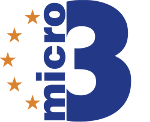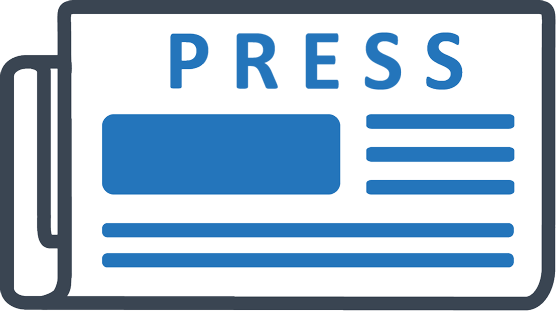- Home
- About
- OSD
- MyOSD
- Partners
- Work Packages
- WP 1Management & Coordination
- WP 2 (OSD)Ocean Sampling Day
- WP 3Oceanography & Environmental Data
- WP 4Standards and Interoperability
- WP 5Bioinformatics & Data Integration
- WP 6Exploring Ecosystems Biology
- WP 7Function and Biotechnology
- WP 8Intellectual Property (IP) Management for Marine Bioprospecting
- WP 9Dissemination & Outreach
- Public DeliverablesAll Micro B3's public deliverables
- Meetings
- Workshops
- Third Micro B3 Industry Expert Workshop
- Micro B3 Industry Expert Workshop
- Micro B3/OSD Analysis Workshop
- Micro B3 Stakeholder Workshop
- Micro B3 Summer School in Crete 2014
- Marine Metagenomics Bioinformatics
- Micro B3 Industry expert workshop
- EU-US Training 2013
- Micro B3 Statistics Training 2013
- MG4U Bioinformatics Training 2013
- Bioinformatics Training 2012
- EU-US Training 2012
Management & Coordination
Rationale and objectives
The Micro B3 project aims at reinforcing the research on marine microbial biodiversity, bioinformatics and biotechnology in Europe and beyond and builds on the ample experience of a number of world leading research institutions and private industrial companies. Designated as a large-scale integrated project it includes 32 participants from the EU, ranging from field scientists, oceanographers to bioinformaticians as well as experts in biotechnology and legal aspects. With the highly interdisciplinary and intersectoral approach followed in Micro B3 the success of the project will heavily depend on the efficient coordination and management. A smoothly functioning, integrated consortium with good partnership between participants, timely fulfilment of all contractual commitments and accurate monitoring of scientific and technological progress, is the main goal of this WP.
Micro B3 has the following main objectives in order to create a new inter- and multidisciplinary culture in marine sciences:
- State-of-the-art facilities and expertise to provide high quality sequence and environmental (contextual) data for a broad range of marine environments
- Detailed knowledge of oceanographic databases, earth observation and monitoring as well as data management
- Development of standards for describing sampling, sample handling and data processing in the context of molecular studies, also in marine environments
- Expertise in the development of innovative bioinformatic approaches for data processing, analysis and integration, including developing professional software products
- Expertise in ecosystems biology to allow interpretation of data and empower modelling approaches to enhance predictive capacities for the marine ecosystem
- Expertise and state-of-the-art facilities to discover enzymatic functions and bioactive compounds for biotransformation and biocatalysis, including companies with emerging biotechnological products for white, green and red biotechnology
- Expertise to develop IP agreements for pre-competitive microbial research materials and data as well as for the exploitation of high potential commercial applications provided by legal experts
- Exemplary training and outreach activities to support knowledge and technology transfer as well as capacity building around Europe
- An experienced management and coordination team to ensure professional management of the project in a collaborative working environment. It implements performance control procedures to deliver in time and an appropriate strategy for the use of knowledge, dissemination and intellectual property rights management.
Recent progress
WP 1: The management and coordination team ensures professional management of the project in a collaborative working environment. It also maintains contact with related projects and a high-level advisory board, linking Micro B3 to major research infrastructures. For more on WP 1 see below.
WP 2 has focused on mobilizing the marine research community for global sampling of the world’s oceans on Ocean Sampling Day (OSD), June 21 2014. Designed to support a single European OSD event at month 30, pilots were launched in 2012, and 60 international sites participated in June 2013. WP 2 has established standards, built a sites registry, drafted a data policy, and secured archiving and sequencing capacities.
WP 3, WP 4 and WP 5: A comprehensive description of standard reporting requirements in oceanographic, biodiversity and molecular domains and a model for organising data flows were set up as best practice guidelines for collection of marine microbial samples in a rich environmental context. Interoperability structures are emerging for submission, storage and exchange of Micro B3 data between the established archives SeaDataNet, EurOBIS, the European Nucleotide Archive at EBI, and the Micro B3 Information System (Micro B3-IS). Geographical pilot areas were selected as matching locations with genomic and oceanographic data available. The Ocean Sampling Handbook 1.0 was deployed which focuses on molecular analysis; it is consistent with national and international jurisdiction. Technical infrastructure components and the first version of the Micro B3-IS are available for beta testing.
In WP 6 case studies were chosen related to the exploration of the marine microbial ecosystem, including spatial monitoring done through expeditions and temporal monitoring programmes at long term sampling sites. In a joint effort between WP 5 and WP 6 an Interactive Ecological Analysis Guide (IEAG) and Ecological Analysis Tools for Microbial Ecology were developed and tested.
In WP 7 Univ. Groningen developed a workflow for the computational prediction of substrate selectivity of homologues of genes with known activities. MPI-Bremen is establishing a system to identify networks of co-occurring unknown genes hinting at their hypothetical functions. The SME partner Bio-Prodict has established new databases for two phylogenetically unrelated classes of epoxide hydrolases. PharmaMar is focusing their work on genome mining for specific sequences of putative biosynthetic gene clusters of antitumor compounds. Libraries have been constructed from marine samples and are available at Bangor, IAMC, Bio-Iliberis, and BIOMERIT.
WP 8 developed Micro B3 model agreements on access to marine microorganisms and benefit sharing to be used for pre-competitive utilization and research, for competitive research and for hybrid situations. The agreements are characterized by an innovative distinction between research and development for the public domain as well as for proprietary purposes. A viral license clause for transfer of genetic materials to third parties was introduced.
A detailed Dissemination & Training Plan was developed in WP 9 to ensure the targeted and timely dissemination of relevant information on marine microbial diversity, bioinformatics and biotechnology. Two different sets of activities were implemented: Outreach, knowledge and technology transfer aspects are targeting the public, the industrial sector, and policy makers. This includes two stakeholder and three industry expert workshops, as well as dissemination material like a web portal, articles, roll-ups. Secondly an extensive plan of training activities includes several short courses and a summer school (May 2014).
Cross-cutting activities: The first outreach workshop (Brussels, Feb. 2013) focussed on Micro B3 related legal aspects and included representatives from other FP7 projects on marine biotechnology to enhance synergies and collaborations. Two training courses focussed on bioinformatics (Oct. 2012, Jacobs University) and on the IEAG’s content (June 2013, MPI-Bremen).
Cooperation with other projects and programmes
Besides the day-to-day work for managing Micro B3, WP1 was instrumental to organize elements of the following events under the lead of the Biotriangle EU project and related to Prof Glöckner’s work in the EU-US Task force for Biotechnology Research:
- 17-30 June 2012: Joint EU-US Theoretical and Practical Training Course on Marine Bioinformatics and "Marine Omics". (Jacobs University, Bremen) EU chair: Frank Oliver Glöckner, US chair Jennifer Biddle.
- 22 June 2012: Meeting of the EU US task force on marine biotechnology in Bremen including a visit to the EU-US training course.
- 16-29 June 2013: EU-US Theoretical and Practical Training Course on Marine Bioinformatics and "Marine Omics". (Delaware Biotechnology Institute, Newark) EU chair: Frank Oliver Glöckner, US chair Jennifer Biddle.
Links to the ESFRI project EMBRC are actively maintained as the Coordinator is associated partner in WP3 with direct contacts to Chuck Cook (EMBL/EBI), and regularly gives input to their activities. Also he is a member of the Marine Research Infrastructure Expert Group and WP leader in the ESFRI project MIRRI (Microbial Resource Research Infrastructure). Prof. Glöckner is furthermore involved in the FP7 projects MAMBA (Marine Metagenomics for New Biotechnological Applications), Symbiomics (Molecular Ecology and Evolution of Bacterial Symbionts), BioVel (Biodiversity Virtual eLaboratory) as well as EuroMarine (Integration of European Marine Research Networks of Excellence). On the national level he is work package leader of the German Federation for the Curation of Biological Data (GFBio).
Also Micro B3 is collaborating with other European funded projects and relevant international initiatives:
- MacUMBA, an emerging large EU-project on cultivating marine microbes
- MetaExplore, a large EU-project on metagenomics for bioexploration
- MG4U, Marine Genomics for Users, a Coordination Action within KBBE
- EMODNet, an initiative of DG MARE related to marine knowledge
- The Genomics Standards Consortium (GSC), an international initiative
- Mirada Long Term Environmental Research (Part of NSF’s US LTER Program)
- Earth Microbiome Project
- Genomic Observatories initiative
- BlueGenics, PharmaSea, SeaBioTech three marine biotech projects within KBBE
Short information and links can be found at: projects and initatives.
Interaction with other projects and programmes included the participation to conferences, workshops and meetings were especially intense during the following events.
You can find more information on many of them under events and news:
- 4-7 March 2012: 13th Genomic Standards Consortium Meeting (GSC 13) - Shenzhen
- 9-10 May 2012, Submariner Blue Biotechnology Cooperation Event – Kiel
- 17-19 September 2012: 14th Genome Standard Consortium (GSC 14) – Oxford, linked to the Ocean Sampling Day (WP2 of Micro B3)
- 24-25 October 2012: BioMarine Business Convention - London, linked also with CSA Marine Biotech and MG4U
- 16-17 November 2012: Prof. Glöckner attended the Tara Oceans Advisory Board meeting - Paris
- 27-30 November 2012 & 11/12 June 2013: MIRRI project kick-off meeting – Braunschweig & MIRRI WP leader meeting - Athens.
- 27-28 February 2013: Micro B3 stakeholders workshop “Towards a Model Agreement on Access and Benefit Sharing for Marine Genetic Resources (with a focus on marine micro-organisms)” - Université catholique de Louvain, Bruxelles. Ten Micro B3 partners met with different stakeholders to discuss the legal work undertaken so far by WP8, and especially the model Access and Benefit Sharing Agreement for marine genetic resources, being drafted as a deliverable of the WP8. Four other EU consortia were also attending: BlueGenics, MIRRI, PharmaSea, SeaBioTech
- 10-13 March 2013: Annual Conference of the Association for General and Applied Microbiology (VAAM) – Bremen
- 18-20 March 2013: Oceanomics kick-off meeting - Paris
- 22-24 April 2013: 15th Genomic Standards Consortium (GSC15) - Bethesda
- 25 April 2013: Genomic Observatories Network Workshop (GOs2) - Washington DC
- 27-31 May 2013: MG4U Theoretical and Practical Training Course in Bioinformatics: Basics Bioinformatics for Marine Microbial Genomics – Bremen
- 25-28 June 2013: EMBO Workshop, The Molecular Life of Diatoms Conference - Paris
Lead of WP 1: Frank Oliver Glöckner (Coordinator), Jacobs University Bremen
Further reading
BioMarine Business Convention 2012: Report with Recommendations of all Think Tanks
Short Article in Aquafeed Magazine on Main Micro B3 Think Tank: Marine Biotech for the Environment
ESF Position Paper 17: Marine Microbial Diversity and its Role in Ecosystem Function and Environmental Change


